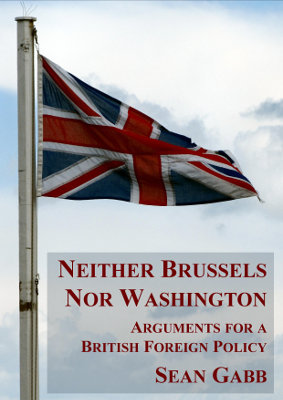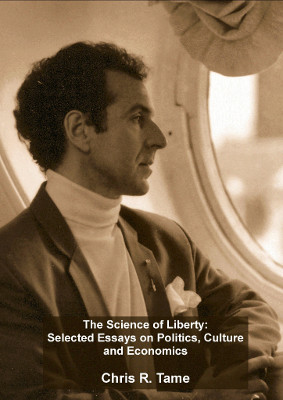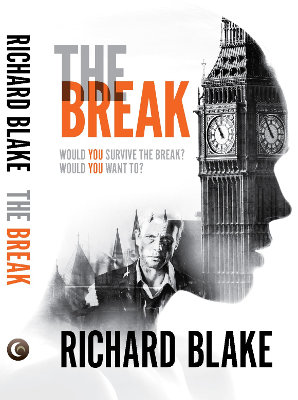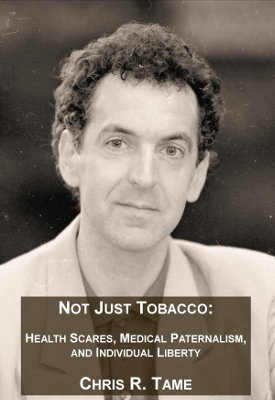
|
THE LIBERTARIAN ENTERPRISE Number 871, May 8, 2016 Taxation is evil. Taxation is theft. Taxation is slavery. Taxation is the fuel of war.
The British Local Elections: Special to L. Neil Smith's The Libertarian Enterprise There were local elections yesterday across much of the United Kingdom —Scottish and Welsh parliaments, London Mayor and Assembly, and a sprinkling of English local authorities. Most of the results are not in yet, and I have no intention of looking at them very closely. They are in themselves a short term issue, interesting and important to a few obsessives and to anyone who hopes to make financial gain from whoever is now in. They are interesting and important to me only so far as they contribute to a longer term realignment of our politics. Before 1940, there was a clear choice in politics. On the one side was the Conservative Party. This was committed to preserving whatever could be held of the traditional social and economic structure of the country. The landed interest was no longer dominant, but remained a strong part of the Tory coalition, and its interests were broadly congruent with those of the other possessing classes. Abroad, the Party was committed to preserving the Empire and British world power. These were not narrow-minded concerns. Traditionalism involved a defence of things like freedom of the press and due process of law and the general system of English liberty. It also involved a concern with the welfare of the poor. Whether protectionism was a good or bad policy is less important than the desire it showed to guarantee work at reasonable wages to the working classes. The Labour Party was not in practice that far removed from the Conservatives on foreign and Imperial policy. Its main difference was the belief in an economic reconstruction that made the welfare of the working classes the main criterion of policy. For the sake of balance, I will say that there was nothing ignoble about the old Labour project. It was mistaken in its means, and my personal inclinations would have made me a Conservative. But there is nothing wrong with a concern for raising up the poor. Between 1940 and the present, these competing national visions have faded into slogans for bringing out at election time. Of course, there is no longer an Empire, and British world power has declined. But the Conservatives still like to sound like members of the traditional ruling class, and often are in genetic terms. The Labour Party still talks fondly about Clement Attlee. The reality is different. Both parties are committed to a neoconservative foreign policy dictated from Washington, and to domestic policies that are both authoritarian and corporatist. They are also equally committed to Bakanising and thereby abolishing the country as it has existed over time. If Britain—or just England—is to survive and recover, both parties must be destroyed. The problem is that, since at least the 1970s, each has been living off fears of the other. By way of explanation, let me give my own personal experience. I voted Conservative in 1979 in youthful hope of a traditionalist reaction. With the Falklands victory still in mind, I was eager to vote Conservative again in 1983. By 1987, I voted Conservative with growing doubts. Since 1992, I have voted Conservative only to keep Labour out. When, in 2001 and 2005, the Conservatives had no reasonable chance of winning, I voted UKIP. But I voted Conservative in 2010 and in 2015. I would certainly have voted Conservative had yesterday's elections been for Parliament. I have Labour friends whose personal history is similar. Both parties are unpopular with or reviled by many who vote for them. Each survives by making itself ever so slightly better, in the eyes of its electors, than the other. To get rid of both parties, therefore, we need to lose either one of them. Lose one, and the other loses its only selling point. Peter Hitchens has long been convinced that the Conservatives should go first. Without giving my reasons. I disagree. In any event, the Conservatives are in Government, and are likely to stay there for a long time. At the moment, Labour is the weakest member of the duopoly. Now to the elections. I was hoping Labour would do a great deal worse than it did. I am pleased that it did badly in Scotland. Because of traditionally weak support in England, it will need to do well in Scotland to win the next general election. A further benefit is that the loss of Scottish support to the nationalists reduces the number or influence in Westminster of some really malign authoritarians. I am less pleased by Labour's showing in England. The party has not been entirely deserted by the white working classes, and it looks as if its collapse into a sectional party for state workers and non-whites will not happen in time for the next general election. An encouraging sign is the present scandal over Labour's anti- semitism. I do not for a moment believe that Jeremy Corbyn and Ken Livingstone are Hitler-worshipping anti-semites. Their hostility to Israel has nothing to do with a dislike of Jews, but is partly to firm up Islamic electoral support, and partly because they are instinctively outraged by the sight of an ethno-state willing to do whatever it takes to look after its own people. But it is a funny scandal to watch. These are the people who first began whining about racism in the 1970s, and who made rules wherever they could in the 1980s against mention of black bin bags and black coffee. To see them now opening their mouths with astonishment is rather like watching Robespierre dragged to the guillotine. I doubt if many non-whites will be put off voting Labour by accusations of anti-semitism. But the accusations sow useful dissension at a time when the party is already weak. The ideal outcome at the next general election will be a Conservative landslide. What happens in Scotland is no longer important. The referendum on Europe is also unimportant. I doubt if we shall leave the European Union in the next ten years. When we do leave, it will be as part of a general scheme of reconstruction. What matters now is the destruction of the Labour Party. Give the Conservatives a majority of two hundred at the next election, and they will spend a few weeks running about like a dog with two tails. They will then start tearing themselves apart. Even otherwise, the path will have been cleared for the emergence of new parties committed to liberty and tradition. Putting this analysis earlier today to one of my colleagues, I was reminded of Labour's big victory in 1997. This shattered the Conservatives and kept them weak for a decade, yet the Labour Party did not implode. My answer to this point is that there was no credible socialist alternative to New Labour. Many Labour voters, and some politicians, may still have worshipped Arthur Scargill in 1997. But hardly anyone thought that kind of socialism was likely to work. Intellectual leftism has been a dying force since the 1980s. The universities and every institution connected with the State are dominated by people who call themselves leftists. These continue to do much harm, and will do more yet. This being said, they are increasingly no more than a social network—ruthless and without mercy or charity if you are not one of them. But they are an organised mediocrity. Though we can laugh at their obscurity, men like Althusser and Lukács had something to say. When they publish, their successors are just going through the motions. They have nothing to say that convinces anyone with half a brain. After 1997, New Labour was The Left. The right, on the other hand—however you want to define that—is increasingly vibrant. It may be split into dozens of factions, not all of them on speaking terms with each other. But it is a live intellectual force. Look behind the red dwarf that is Conservative Central Office, and the clamour of rightist intellectuals is only kept out of the mainstream media by the current generation of scared apparatchiks who continue to dominate our national life. And so yesterday's results look promising. Once you look below the surface, nothing happens quickly in politics. But something does appear to be stirring, and may have been stirring for some time. Now, let me say in closing, for the avoidance of doubt, that the Libertarian Alliance is a charity. We do not involve ourselves in party politics. We made no recommendations of how to vote in yesterday's elections, and we make none for any election in the future. This article and others like it must be taken purely as intellectual commentary in pursuit of our charitable objectives.
Copyright © 2016 The Libertarian Alliance, All rights reserved. Our mailing address is:
Just click the red box (it's a button!) to pay the author
This site may receive compensation if a product is purchased |






